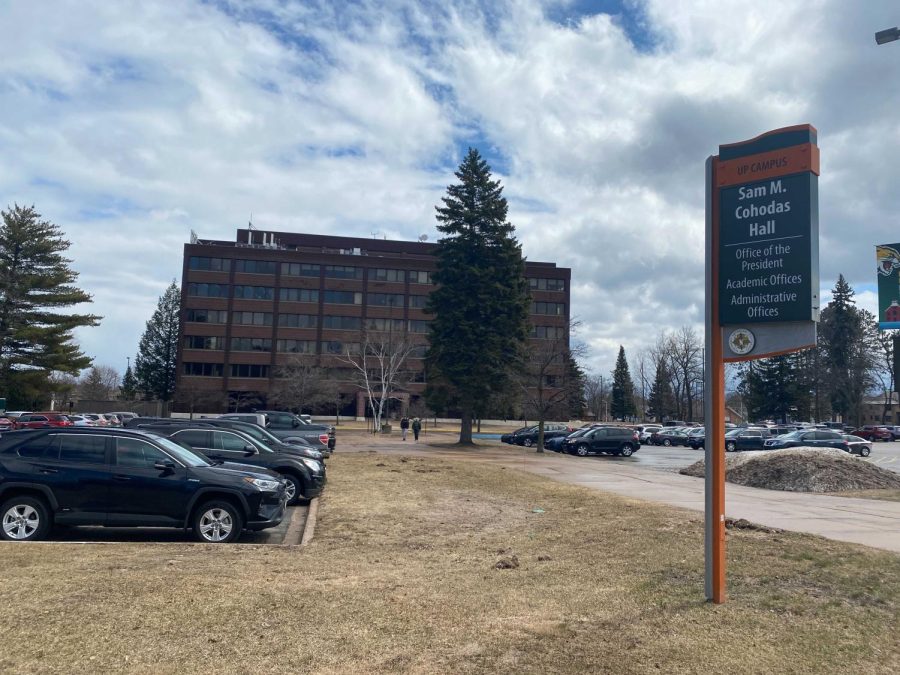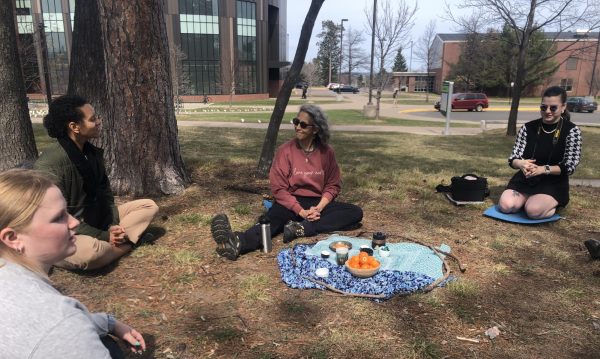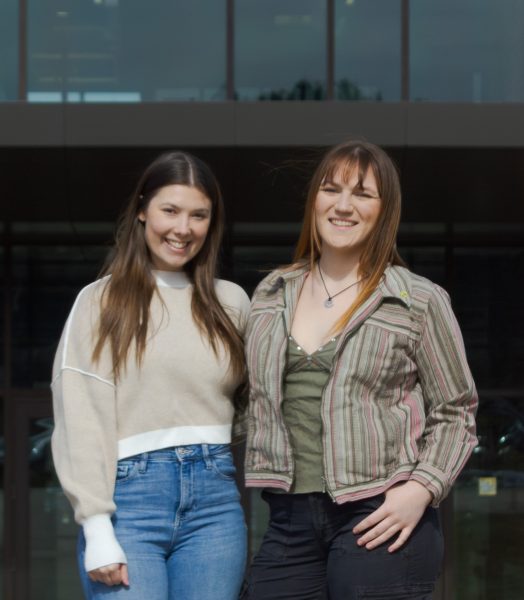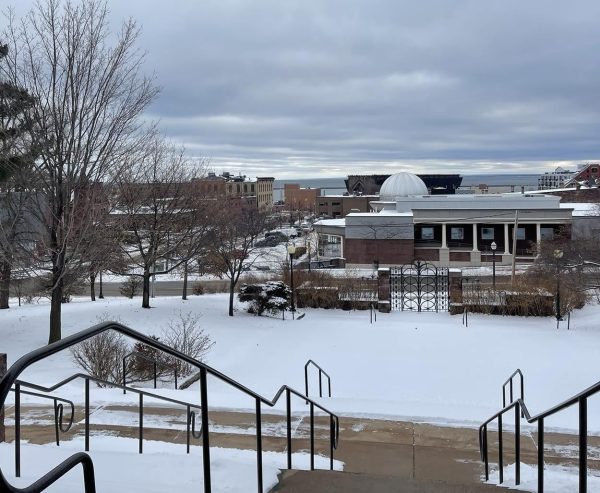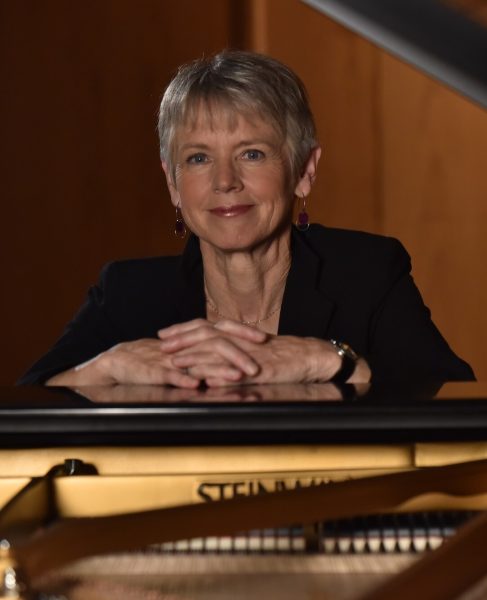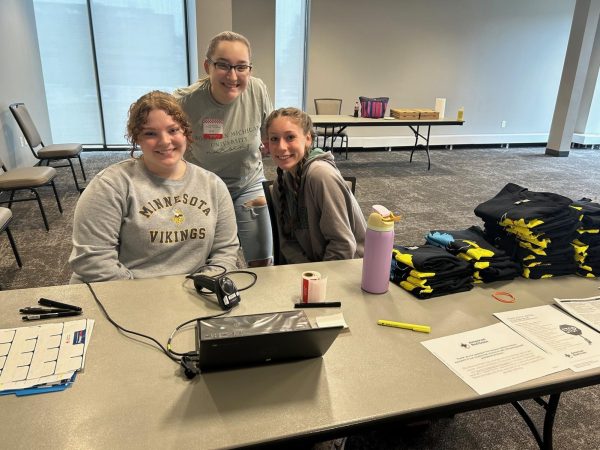DivestNMU closes Earth Week with guest speaker and climate march
EARTH WEEK— DivestNMU’s climate march will end at Cohodas Hall with speakers and informational tables. Ryley Wilcox/NW
April 21, 2022
DivestNMU, a student organization demanding the university pull investments out of fossil fuels, will host a guest speaker and a climate march to close out the 8th Annual Anderton’s Earth Week at NMU.
The Annual Anderton’s Earth Week honors the memory of the late professor, John B. Anderton (1964-2014), who was a member of the Earth, Environmental and Geographic Department at NMU, and served as the department head from 2008 to 2011.
Gracie Brett, a co-director of DivestEd, a national organization for divestment for higher education, and college and university campuses, speaks Thursday at 7 p.m. in Jamrich 1311.
“I asked her to talk as if someone knew nothing about divestment because I think there are a lot of people at NMU who don’t understand divestment at all and I want to clear up some misconceptions about it,” said Molly Miller, club member and junior social work major.
A Climate Action March takes place at noon Friday. Marchers will meet at the Wildcat Statue and march to the Cohodas Building with speakers and informational tables following at 2 p.m.
The student organization originally started out as a subgroup of the EcoReps named “divestment.” The group quickly grew and is now its own organization with separate meetings and members, said Miller.
“Our focus is trying to get NMU to commit to freezing all future investments in the fossil fuel industry, and eventually phasing out all current investments in the fossil fuel industry,” said Miller.
Zoe Tardy, club member and senior environmental science major, said that money that comes into the university is put into the stock market via mutual funds. These funds may be invested into fossil fuel companies or parent companies that are involved in natural resource fossil fuel extraction.
“One way or another, the university is directly or indirectly invested in the destruction of our planet by having these funds going toward these companies that are doing wrong,” said Tardy.
DivestNMU has been developing a proposal since October 2021 to encourage the university to phase out all their investments in fossil fuels by 2028 with at least 50th% phased out by 2025 and 15% divested into low carbon and green funds, said Miller.
“I had some questions like how do you think the university can afford this? And I was like, well, I don’t see how they can afford not doing this,” said Miller. “Over the last 10 years, our economic report and the heat map show we’ve lost the most money from oil and gas.”
Another goal of DivestNMU and the university is to go carbon neutral, said Maggie Bailey, club member and junior environmental science major.
“In order to be carbon neutral, they have to divest. So having the student body be aware of that I think is really important and gaining momentum for this will mean hopefully it gets carried out soon here,” said Bailey.
In the past, the student organization has put together informational tables in academic buildings and petitions to garner support from students, said Bailey.
In addition to environmental sustainability, DivestNMU promotes both social and environmental justice, said Tardy.
“You can’t have environmental sustainability without talking about environmental justice,” said Tardy. “And you can’t talk about environmental justice, obviously, without talking about social justice.”
As individuals, students can only do so much to halt the climate crisis, said Tardy.
“A lot of times when we’re thinking about sustainability, we talk about people who go vegan and ride their bikes and recycle,” said Tardy. “And those things are all really important, but at the same time, you can only go so far down the path of personal sustainability.”
Miller said she thinks the key to making improvements in the climate crisis are done via collective action and institutional change, such as asking the university to divest.
To the members of DivestNMU, attending events like the climate march is a no-brainer, said Tardy.
“Why wouldn’t you? This is our planet and we are the young people today, who will be the elderly people suffering the consequences of this in the future if we don’t participate in things like this,” said Tardy.
This week, DivestNMU also organized a poster-making event in the Olson Library on Tuesday and an Earth Week Fair in Jamrich Hall on Wednesday.
“I just think if you care about the Earth, if you care about your future, these are events that you should attend,” said Bailey.





















